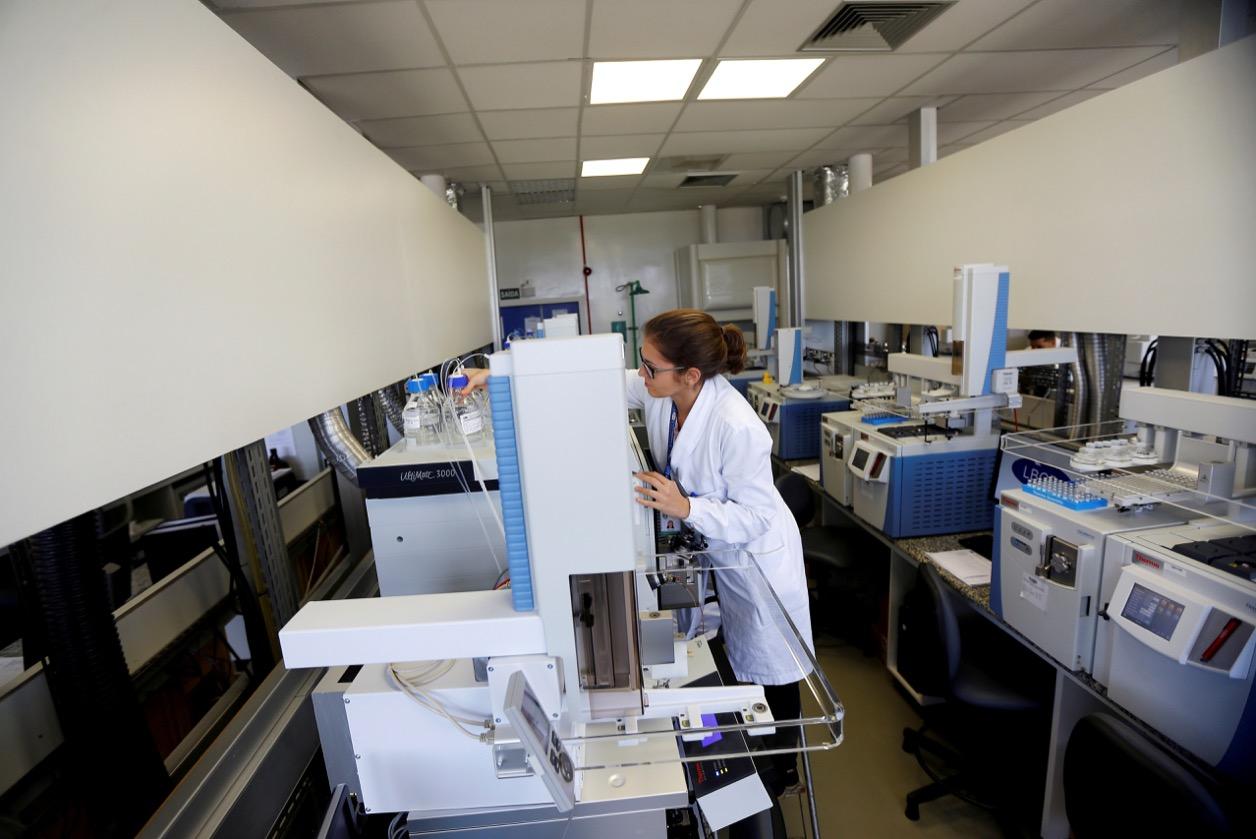Rio’s Olympic anti-doping lab is reopening. But nobody is saying what it did wrong.
A worker at a doping control lab during its inauguration on May 9, before the 2016 Rio Olympics.
Update: The World Anti-Doping Agency announced on Wednesday it is reinstating Rio de Janeiro's doping control lab, saying the facility has successfully complied with international standards.
A sparkling new anti-doping lab in the Olympic city of Rio de Janeiro opened its doors in May. The following month it was forced to shut down.
The World Anti-Doping Agency said the lab didn't comply with regulations, and offered no further details.
Then the agency, WADA, announced it is reinstating the lab on Wednesday — little more than two weeks before the Summer Games opening on Aug. 5. But WADA still won't say what the $60 million lab did wrong or specifically why it had lost its accreditation.
These questions became even more important this week after a WADA report concluded that an anti-doping lab in Moscow was deeply involved with a state-sponsored doping program during the Sochi Winter Olympics in 2014. The agency's executive committee even called for a ban on all Russian athletes and officials to the Rio 2016 Olympics as a result. In response, the International Olympic Committee, or IOC, said it has to review legal options before barring Russia.
But WADA won’t say if the problems discovered in Rio are similar to what happened in Russia. The Rio lab had twice lost its accreditation before, in 2012 and 2013. PRI has been pressing the agency for details.
“As it relates to the specific reasons why a laboratory may have its accreditation suspended, WADA cannot provide these details due to ongoing legal processes that include the laboratory’s right of appeal to the Court of Arbitration for Sport,” Maggie Durand, communications coordinator for the agency wrote in an email last week.
It’s unclear how informing the public about the facility's problems would affect its right of appeal. Calls and emails to the lab's director went unreturned, as did calls to the Brazilian Doping Control Authority.
A spokesman for the United States Olympic Committee emailed a comment from CEO Scott Blackmun, responding to the report on Russia.
“The current anti-doping system is broken and urgently requires the attention of everyone interested in protecting clean athletes. We look forward to working with the IOC, WADA and the entire Olympic family to address the flaws in the current system so that a uniform approach to anti-doping can be implemented and enforced around the world.”
Rio's state-funded lab was refurbished extensively in the last couple of years, partly to address similar problems as those in Sochi. The Russian experience was “an extraordinary manual of what not to do,” Marco Aurelio Klein, national secretary of the Brazilian Doping Control Authority, told the New York Times earlier this year. “We reviewed all of our procedures after reading it.”
Nevertheless, the lab lost its accreditation in late June and WADA formed a disciplinary committee to examine the case. The agency wouldn’t provide any information about the committee’s findings.
Suspension during the Olympics would have been a major headache for Olympic officials, since samples of athletes’ blood and urine would have to be sent to another laboratory.
The only other accredited lab in South America is in Bogota, Colombia — almost 3,000 miles away.
Read more: No one embodies 'Olympic spirit' like the athletes on this summer's refugee team
Our coverage reaches millions each week, but only a small fraction of listeners contribute to sustain our program. We still need 224 more people to donate $100 or $10/monthly to unlock our $67,000 match. Will you help us get there today?
